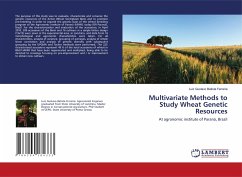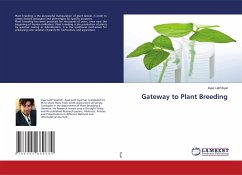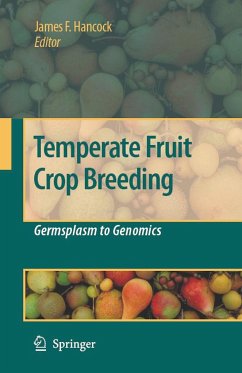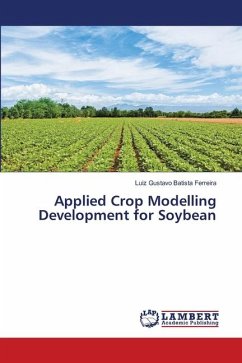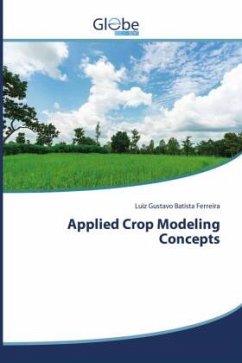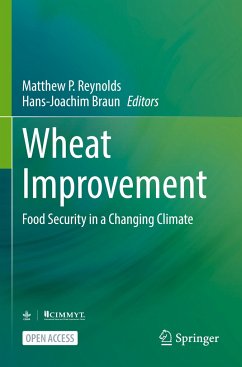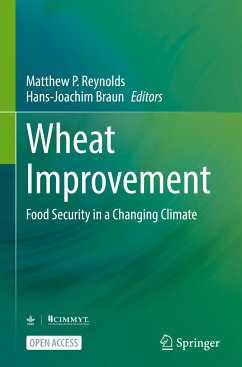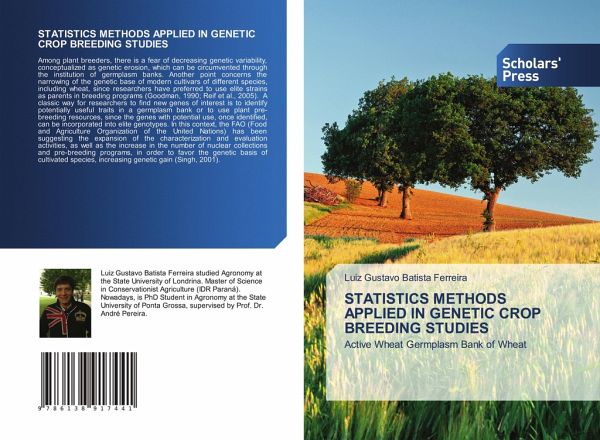
STATISTICS METHODS APPLIED IN GENETIC CROP BREEDING STUDIES
Active Wheat Germplasm Bank of Wheat
Versandkostenfrei!
Versandfertig in 6-10 Tagen
30,99 €
inkl. MwSt.

PAYBACK Punkte
15 °P sammeln!
Among plant breeders, there is a fear of decreasing genetic variability, conceptualized as genetic erosion, which can be circumvented through the institution of germplasm banks. Another point concerns the narrowing of the genetic base of modern cultivars of different species, including wheat, since researchers have preferred to use elite strains as parents in breeding programs (Goodman, 1990; Reif et al., 2005). A classic way for researchers to find new genes of interest is to identify potentially useful traits in a germplasm bank or to use plant pre-breeding resources, since the genes with po...
Among plant breeders, there is a fear of decreasing genetic variability, conceptualized as genetic erosion, which can be circumvented through the institution of germplasm banks. Another point concerns the narrowing of the genetic base of modern cultivars of different species, including wheat, since researchers have preferred to use elite strains as parents in breeding programs (Goodman, 1990; Reif et al., 2005). A classic way for researchers to find new genes of interest is to identify potentially useful traits in a germplasm bank or to use plant pre-breeding resources, since the genes with potential use, once identified, can be incorporated into elite genotypes. In this context, the FAO (Food and Agriculture Organization of the United Nations) has been suggesting the expansion of the characterization and evaluation activities, as well as the increase in the number of nuclear collections and pre-breeding programs, in order to favor the genetic basis of cultivated species, increasing genetic gain (Singh, 2001).



